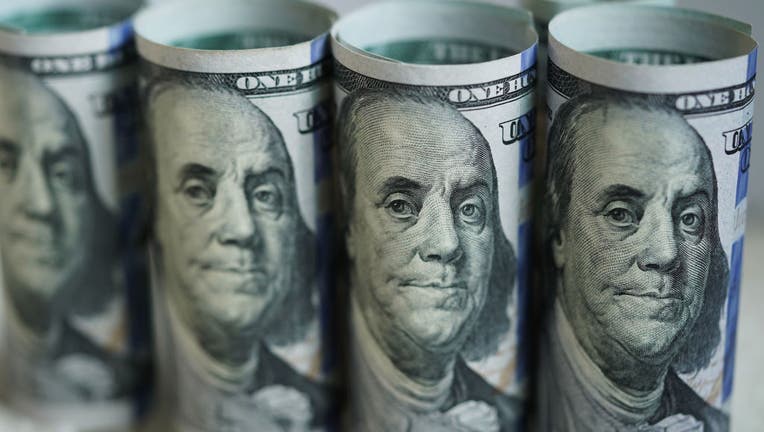San Francisco supervisors call for statewide 'millionaires tax'

WASHINGTON D.C., March 19, 2020 -- Photo taken on March 19, 2020 shows U.S. dollar banknotes in Washington D.C., the United States. The Trump administration's plan to send Americans relief money as part of a massive stimulus package in response to CO
SAN FRANCISCO (BCN) - San Francisco supervisors on Tuesday unanimously approved a resolution urging state lawmakers to look into new ways create revenue to help with the state's economic recovery in the face of the COVID-19 coronavirus, like taxing millionaires.
The resolution, authored by Supervisor Dean Preston, proposes a transfer tax on the highest value real estate transactions worth $10 million or more. It's estimated to generate between $100 million and $150 million annually, Preston's office said.
"The gap between rich and poor, even before this global pandemic, was unacceptable," Preston said in a statement. "But during this time and in the post-COVID period, we need to take every possible measure, both locally and at the state level, to make sure we can continue to fund the absolutely necessary social services for the people who need it most."
With a projected state deficit at $54.3 billion in the next fiscal year, Preston said extra revenue sources are desperately needed. The resolution is part of a larger grassroots effort across the state, urging cities to show support for a millionaire tax proposal.
During the meeting, Preston, along with supervisors Hillary Ronen, Shammann Walton, and Matt Haney also introduced a resolution calling for the immediate reduction of inmates at San Quentin State Prison to prevent the spread of COVID-19.
In recent weeks, the number of cases at the prison has skyrocketed, with more than 1,000 inmates there having tested positive for COVID-19, as well as 89 staff members. Supervisors blame confined settings and shared spaces like showers, restrooms and common areas in an already overcrowded facility.
Public Defender Mano Raju is backing the resolution.
"The only way we can protect the lives of people at San Quentin and the larger public is to reduce the population as quickly as possible," he said. "San Quentin is often cited as the premier example of a rehabilitation and redemption-focused institution. It is time to honor that depiction by releasing people based on who they are today and not based only on their convictions."
Haney said, "This isn't across the country or globe, this is right across the Bay, there are San Franciscans that are incarcerated there, and San Franciscans that work there who are gravely at risk or who are already infected. There are solutions that can be implemented right now that can save lives. The state of California has a responsibility to those in our custody, and those who are employed in these facilities, to not put them in environments where they will get sick with a deadly virus."
Also at the meeting, Supervisor Rafael Mandelman introduced legislation that would require all electric construction for most new homes and buildings in the city.
If approved, the move would allow the city to build affordable housing quicker, saving time and money by bypassing hook ups for gas stoves. Gas stoves account for nearly 40 percent of the city's greenhouse gas emissions.
The legislation is being backed by the city's Department of the Environment.

